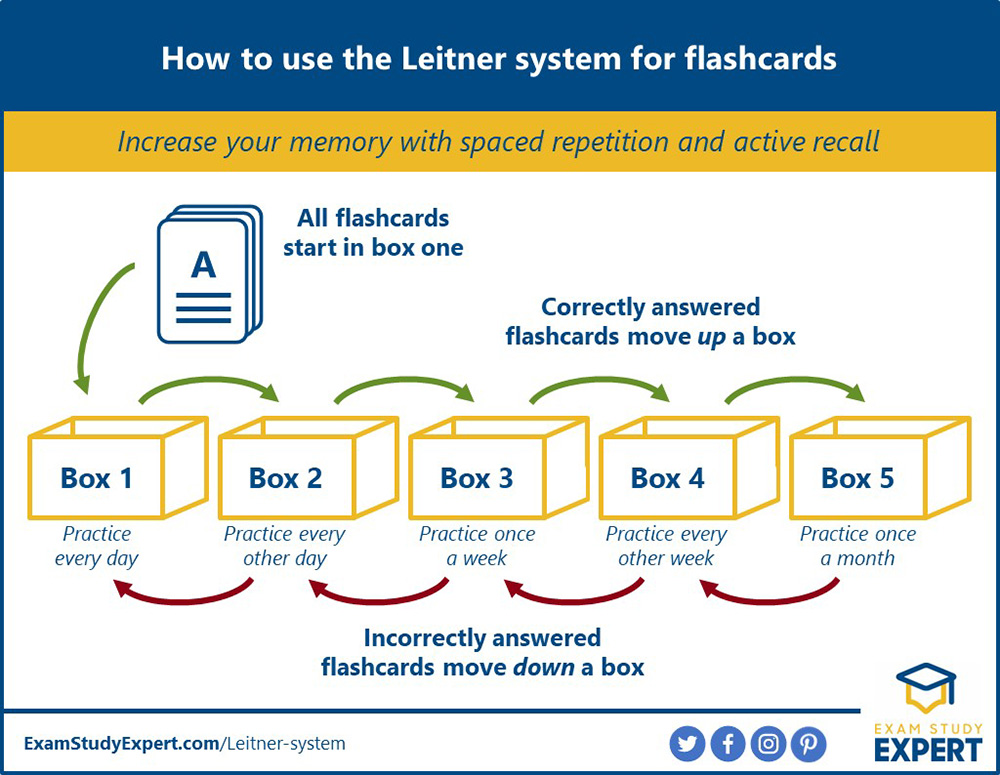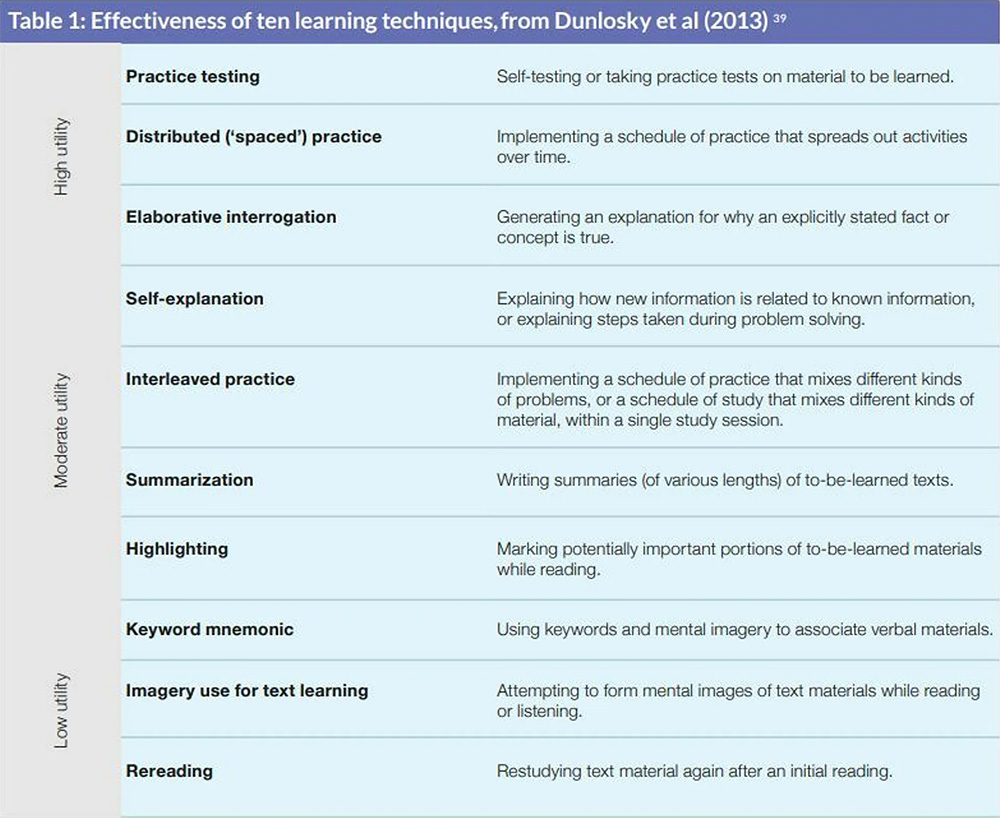The advice is divided into 4 sections:
- Study spaces and helping them look after themselves
- Work, the tasks and the curriculum
- Organisation and study skills
- Talking things through and helping them maintain a positive attitude
For an overview to the 2024 exam season, see this page from BBC Bitesize: Parents’ Guide to GCSEs in 2024
Study Spaces and Helping Them Look after Themselves

-
Help them find a space that works for them
Help them to set up a good place to study. Even better – if this space is a separate space from their bedroom. If they can keep their bedroom as a place to go when they want to relax, sleep or take a break it gives them the opportunity to unwind without the pressure of a pile of books in the corner as a constant reminder of the looming exam season. Moving revision spaces throughout the day can also help. A change of scenery may help to keep their mind focused. Wherever they work, try to help them find somewhere with good light, good ventilation, and a comfortable place to sit.
-
Make sure they have a balance between online and offline spaces
Students can benefit from revising with a friend via an online chat space, and there are some great revision sites, but they shouldn’t spend hours at a time looking at a screen and it is extremely easy to be distracted by all the other temptations of life online. Agree some times in their revision timetable where they will give up their phones and focus on independent study away from their usual distractions. This might mean taking their phone/device off them at times. You may not be popular, but they need to get used to recalling information in a quiet space – just like they will have to in the exam room.
-
Support them in getting enough sleep
We know that good quality sleep is important to our physical and mental health. Try to keep them in a regular pattern. Late nights and sleeping in won’t help when they are trying to get up to do their exams. Encourage a wind-down routine before bed, preferably that doesn’t involve their phone. If they do have their phone in their room at night, talk to them about using the ‘do not disturb’ features to help them get uninterrupted sleep.
-
Encourage them to go outside
Staying inside, in one place all day everyday can contribute to a negative outlook. A brisk walk for a few minutes every day will help to clear heads as well as supporting a good sleep routine.
-
Watch the sugar intake
Some snacks throughout the day may be a great reward and a good incentive to keep going with revision, but make sure they are not just eating sugary, highly-processed foods and skipping proper meals.
Work and the Curriculum

-
You don’t need to be an expert
Sounds simple, but some students are not clear about the revision topics for their exam board. You don’t need to be an expert in a subject, just check that they are using lists given to them by their teachers rather than relying on finding a ready-made list on the internet.
-
Start with the bits they enjoy
If students start their revision with the subjects and topics they enjoy, it will help them establish their routines and get their revision off to a good start. Ask them to be honest about the topics they feel confident with and identify those areas where they may need to work a bit harder. They might need some extra support on the days when they are working through the topics, they find hardest.
-
Encourage them to be precise when planning their revision tasks
Each subject will have a range of different topics and units. Make sure that they identify precise topics to work on e.g. ‘Maths’ is a pretty broad topic for revising but ‘Algebra: Expanding & Simplifying, Factorising, Solving Equations’ is a precise topic which will help them focus on specific goals during a revision session.
-
Make sure they revise the topics they find hardest more often
Within a topic, there will be still some parts that your child feels more secure with and some where they are less confident. The areas where they are less confident should be reviewed more frequently. One example of this is using the Leitner method to organise flashcards.
Flashcards usually feature a question on one side and an answer on the other. When your child is revising, get them to organise their flashcards as follows:
- Start out with all your flashcards for a topic in one pile
- Take the top card and test yourself
- If you get the answer wrong – leave the card in pile one, but if you get it right, move it to start a second pile (pile 2)
- Cards that are in pile one should be reviewed every day. If you keep getting the answer wrong, keep the card in pile one
- Cards that are in pile two should be reviewed every other day. If you get the answer right, move the card to start pile three and if you get the answer wrong, move the card back to pile one
- Cards in pile 3 should be reviewed once a week and again, if you keep getting it right, start a pile 4, or move the card back to pile 2 and so on
-
Continue with this until you have five piles of cards
- Pile 1 – review daily
- Pile 2 – review every other day, say: Mondays, Wednesdays, and Fridays
- Pile 3 – review once per week, perhaps Saturdays
- Pile 4 – review every other week
- Pile 5 – review once a month and before your exam

How to use the Leitner system for flashcards
Organisation and Study Skills

-
Help them to organise their time
School will be encouraging your child to create a revision timetable in the run up to their exams. Ask them to share their revision timetable with you and help them to stick to it!
Make sure they plan sensible timeslots as well as leaving times for breaks and sleep. Check that they have allowed revision time for all their subjects. GetRevising is a great website that can help your child get organised (and it’s free!).
The rest of the family might need to ‘pitch in’ with support by helping out with chores or taking over some family errands whilst the exam season is here – to take some pressure off your teen.
-
Short bursts, not long hours
Some students find that they are more able to concentrate on these shorter, more intensive bursts of revision and are more productive if they work like this. One technique is called the ‘Pomodoro technique’ which encourages students to break revision sessions into smaller chunks of 20-25 minutes. After completing one task, take a 5 minute short break and after completing 4 activities, take a long break. The Tomato Timers website has some built in timers.
-
Quality not quantity
Different ways of learning have been shown to be more effective than others in helping students learn.
Good quality revision involves the students practising recalling information from memory over time. Actively engaging with ‘retrieval practice’, (even if it is a struggle at times) has shown to be the most effective way for students to revise.
Low quality revision is where the student is more passive when engaging with the information and includes re-reading information, keyword mnemonics and copying out text. These low quality methods have been shown to have very little positive effect in helping students learn.

Effectiveness of ten learning techniques, from Dunlosky et al (2013)
For a detailed article on revision techniques and routines, there is a blog entry at the Education Endowment Foundation: Building study habits and revision routines.
Talking Things Through and Helping Them Maintain a Positive Attitude

-
Keep the communication channels open
Build in some time to talk to your child about their revision and how it’s going, but try to balance that with giving them some space to work. Here is a great article from BBC Bitesize that covers 5 ways to motivate your child.
-
Be positive and ‘talk them up’
Everyone likes praise and recognition for a job well done. Try to find some positive things to celebrate on a regular basis; sticking to their revision timetable, working on a topic they find hard, trying different revision techniques or overcoming a hurdle can all be celebrated. Even when they are at their most miserable, you can support them by staying as positive as you can.
-
Help them be realistic and keep things in perspective
Make sure they aren’t trying to do too much and get through an unrealistic amount of work. If there are days when they don’t feel motivated, help them to get back on track with small steps. Remind them that the exam season will come to an end, perhaps plan some post-exam celebrations with them.
-
Look for the signs of stress and anxiety
It is natural for students to be apprehensive about their exams, but if you notice that your child has become more worried than usual, has trouble sleeping, complains of headaches or feeling unwell more often or has significantly changed their eating habits, it may be a sign that they are not coping well with exam stress:
Help your child beat exam stress
If you want to find out more, there are some great resources at the following places:





